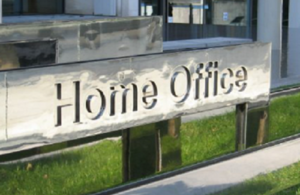New board will strengthen age assessments of small boat arrivals
National Age Assessment Board will help make decisions more consistent and robust.

Home Office
The Home Office has bolstered the process for checking the age of asylum seekers claiming to be children with the launch of the National Age Assessment Board today, Friday 31 March.
The National Age Assessment Board brings together a hub of specialist social workers, who will support local authorities and the Home Office to resolve age disputes by conducting age assessments.
The board will set the national standard for age assessments, acting as a centralised team for local authorities and providing expert advice and training to improve the consistency and quality of how age assessments are carried out.
Immigration Minister Robert Jenrick said:
“It’s a sad fact that there have been cases of asylum-seeking adults pretending to be children to try and game the system, which presents a serious safeguarding risk.
“It is vital we use every tool at our disposal to weed out people falsely claiming to be children so we can prevent abuse of our services and protect children in the UK.
“That is why we are introducing the National Age Assessment Board to set the national standard and ensure assessments are as robust as possible, alongside our commitment to deliver scientific methods to assess age as soon as possible.”
The board will begin a phased rollout in two regions in the UK, London and the West Midlands, before branching out regionally and nationally later this year once recruitment has concluded, which will see around 40 social workers in post.
They will begin by carrying out full Merton-compliant age assessments upon referral from local authorities or on behalf of the Home Office, and will also use scientific methods once these are brought in.
Merton assessments are holistic assessments, involving detailed background research and analysis of information, and are fundamentally different from the initial age assessments that are carried out when people arrive at the border.
Many of those arriving in the UK who claim to be children don’t have clear evidence like a passport to back this up, making it difficult to assess their age.
The introduction of the board is a key part of measures to reform age assessments under the Nationality and Borders Act, and will sit alongside wider measures like scientific methods to ensure age assessments are more robust.
This will ultimately help to prevent asylum seeking adults posing as children as a way of accessing support they are not entitled to. It will also help remove the safeguarding risks of adults being wrongly assessed and placed in the children’s care system, and those which arise if a child is inadvertently treated as an adult.
The need for stronger measures to assess age comes as statistics show that between 2016 and December 2022 there were 7,900 asylum cases where age was disputed and subsequently resolved, of which half (49% - 3,833 people) were later found to be adults.
An example includes a man who crossed the Channel and claimed to be 16 years old. Immigration officers carried out an initial age assessment and deemed him to be 21 years old. He was dispersed to a hotel and referred to a local authority by his solicito. Following a full assessment by the local authority, it transpired that he had claimed asylum and lived in another European country for five years, and was 26 years old.
More serious cases have seen adults being sent to children’s schools, or children being treated as adults, in both cases putting children at risk of harm.